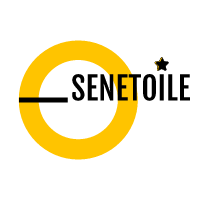Fast backlinks and Guest-post hosting
Friday, October 25, 2013The turnover for the National Agricultural Research Institute (NARI) jumped to D16, 058, 556 in 2012 compared to 2011, when it stood at D13, 544, 667, its finance director has disclosed.
Speaking Wednesday while presenting NARI’s annual financial statements before members of the Joint Session of Public Accounts and Public Enterprises Committees (PAC/PEC) of the National Assembly, Assan Mboge also revealed that the Institute’s total expenditure was D18, 616, 162 in 2012 compared to D17, 133, 481 in 2011. The deficit/surplus, he indicated, was D2, 557, 606 in 2012 compared to D3, 588, 804 in 2011.
Presenting the Institute's annual activity report earlier, its director general, Dr. Babou O. Jobe, informed PAC/PEC that the subvention and development allocations, which remain their main source of financing from government, has been registering shortfalls over the past years. Although the allocations to NARI for personal emoluments have been increased yearly for the past years, according to Jobe, they were only enough to last for the first eight to nine months of the year.
“This required, for three years in a row, the intervention of the Ministry of Finance and Economic Affairs through reallocation of funds and extra budgetary allocations to enable NARI meet its personal emoluments (PE) liabilities for the rest of the year not to talk of the development funds,” he informed deputies. DG Jobe also explained that in each of the three years, NARI required for PE a budget of D12, 000, 000, and development fund of D8, 000, 000.
“Compared to the fiscal year 2010, the disbursement from the approved subvention and development budgets for the year 2011 and 2012 improved significantly with an increase of 11.38% in 2011 and 15.28% in 2012 respectively. However, the increment on the subvention was still less that our net requirement for PE,” he informed.
He told PAC/PEC members that NARI is dependent mainly on its subvention and development funds, which he said are never sufficient to cover both its fixed and variable costs.
Research activities
Commenting on the research activities of NARI, DG Jobe informed that of the 11 programmes constituting the research system, five are commodity-based with six being discipline. He explained that the commodity programmes evaluate and select for high-production potential varieties, breeds and species of crops, livestock and fish; while that of the discipline provide the complementary technologies and information needed to optimise the production and productivity of the commodities.
Technology transfer
Since the objective of agricultural research is to ensure the impact of the technologies generated, the NARI boss told deputies that the Institute’s research and development programmes and projects also implemented activities through the commodity value chain innovation platforms geared towards enhancing technology dissemination and adoption.
“A total of 22 innovation platform clusters for the three West African Agricultural Productivity Programme (WAAPP) priorities field crops (rice, maize, and groundnut), hereby representing three cluster platforms per crop per agricultural region. The total number of farmers or households is targeted on the basis of one hectare per farmer or households in the three commodities platforms in 1490, with an initial direct benefit to 9000 household members,” Jobe told PAC/PEC.
Cereal programme
Director General Jobe also told deputies that the cereal aspect is among the six commodity-based programmes mandated to improve the genetic of both wet and dry land cereals (rice and coarse grains) cultivated in The Gambia. The main expected output of the programme, he further stated, is the provision of varieties of the different cereal crops that have high yield potential and adaptability to the biophysical and socioeconomic environment of the farming community. This programme, he added, can contribute to improved food and nutrition security through increased farmers' productivity in the wet and dry land cereals.
“The activities of the programme among others include; germ-plasm collection and maintenance; variety screening and population improvement; on-farm testing; and breeder seed production,” he explained.
With agriculture being the prime mover of the Gambia economy, he said improved seeds have been widely recognised as the primary input for enhancing farm productivity and overall crop production.
Challenges
Highlighting the challenges confronting NARI, Jobe said effective implementation of research activities are being impeded by a less than optimum technical, material and financial environment.
Taking turns to address the members, a senior compliance officer at The Gambia Public Procurement Authority (GPPA), Ibrahima Sanyang, informed them that NARI was found to be 'non-compliant' with the Public Procurement Act.
Members’ intervention
Reacting to the reports, the National Assembly Member for Illiassa Constituency, Hon. Lamin Jammeh, dug out some issues, indicating that NARI has failed to implement most of the PAC/PEC recommendations. Contrary to what the GPPA compliance officer had said, Jammeh faulted the Institute for what he called its “lack of compliance with GPPA”. He described compliance as a prerequisite to good governance. The Illiassa lawmaker warned that PAC/PEC will not entertain institutions flouting GPPA rules and regulations.
The member for Basse, Hon. Muhammad Magassy, stressed the need to revitalise cotton production in the country, especially in the Upper River Region where it is mostly common. He attempted to know from NARI officials the mechanisms needed to put in place to revive cotton production.
The deputy speaker, Hon. Fatou Mbye, lamented what she called the late submission of report by NARI, something she warned will not be tolerated. She argued that the timely submission of the report will allow members to read and digest it.
The member for Banjul Central, Hon. Abdoulie Saine, said the issues at NARI leave much to be desired, and stressed the need for the institute to live up to expectation given that they are subvented with taxpayers’ money. “Nothing has been done as far as the implementation of the PAC/PEC recommendations are concerned,” he observed.
Responding to the issues raised, DG Jobe assured that the Institute will consider and work on them.
Among other members who asked questions, comment, raised concerns and put forward recommendations, were: Hon. Lamin Jadama of Niamina West, Hon. Mam Cherno Jallow of Upper Nuimi, Hon. Matarr Kujabi of Foni Bondali, Hon. Buba Ayi Sanneh of Kombo Central, Hon. Buba A. Bojang of Foni Kansala, Hon. Demba BT Sambou of Niani, and Hon. Habsana Jallow of Nianija.
After a lengthy debate from both sides of the house, the NARI reports were finally given a clean bill of health and adopted. Meanwhile, sittings will resume on Thursday, 31st October at 11am.
Author: Alieu Ceesay & Aji Fatou Faal
Gambia - ‘NARI'S TURNOVER JUMPED TO D16M IN 2012’
Outils
Vos reglages
- Plus petit Petit Moyen Grand Plus grand
- Default Helvetica Segoe Georgia Times
- Mode de lecture








